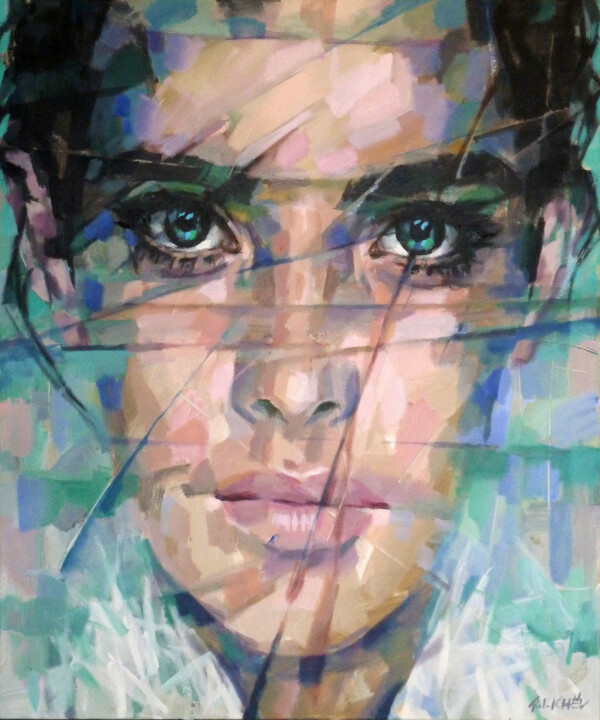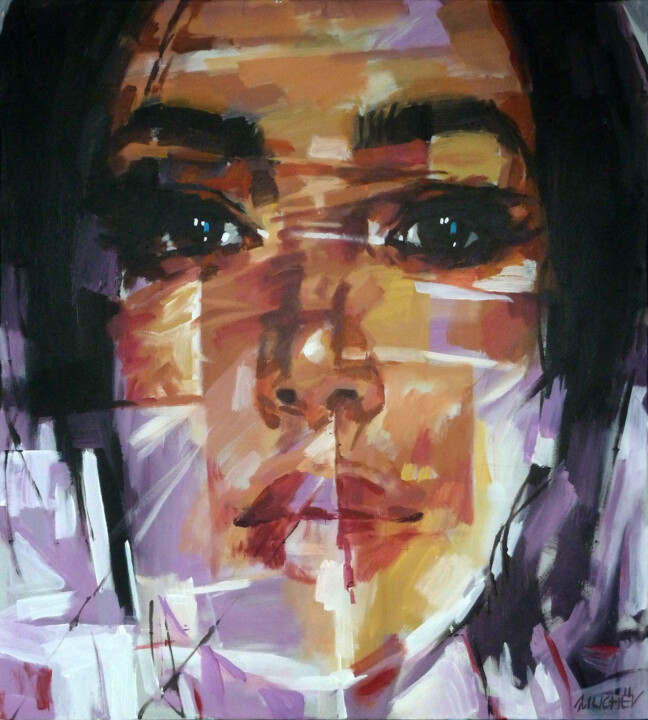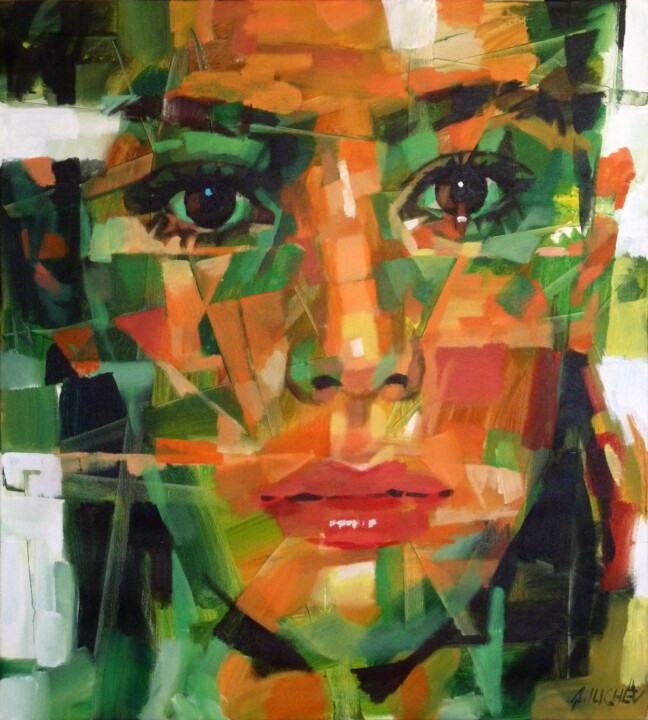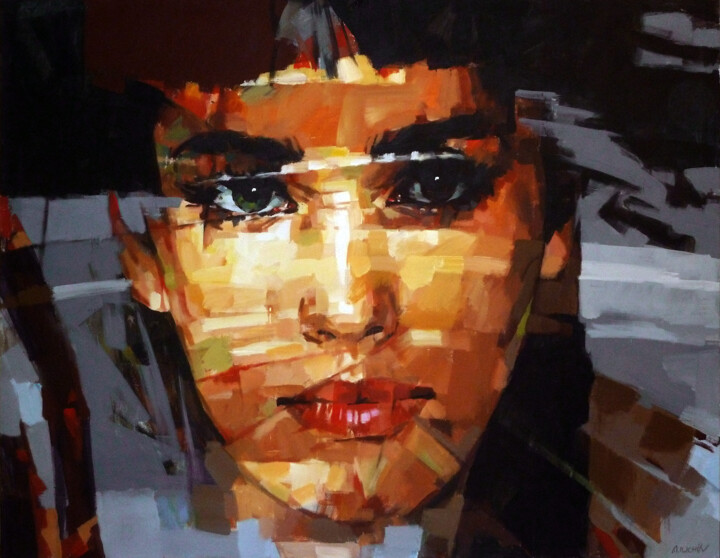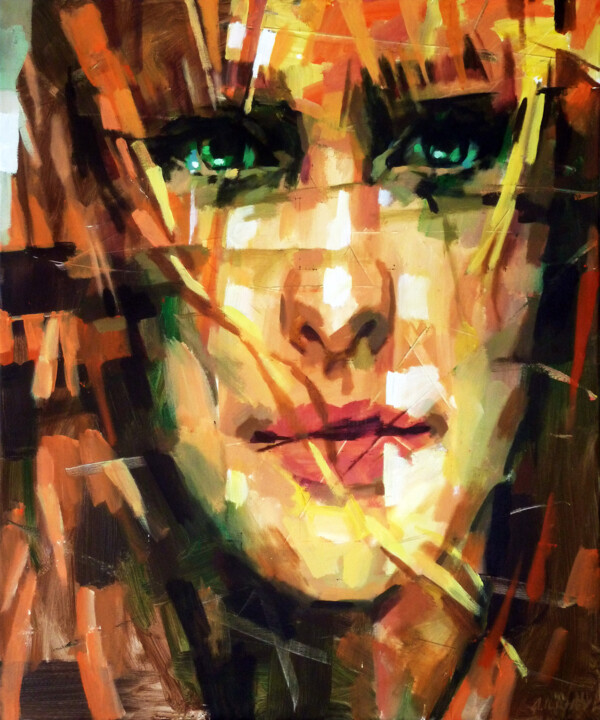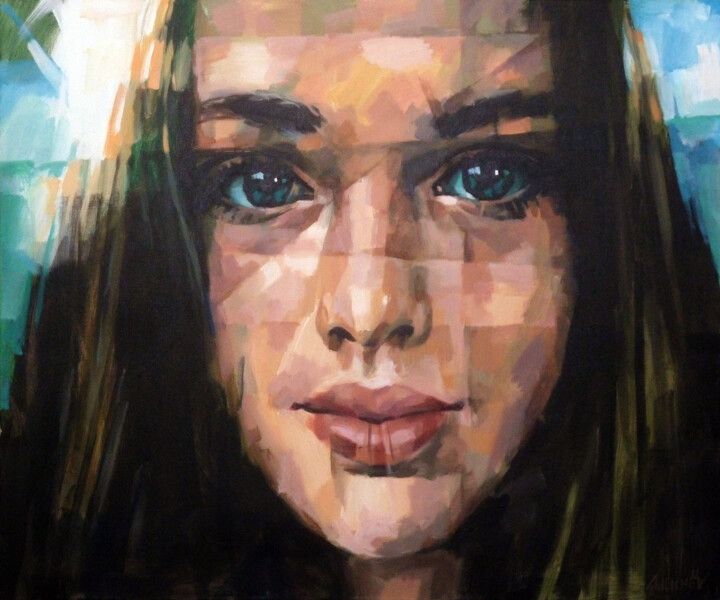What made you turn to art and become an artist? (events, feelings, experiences...)
When I was seven years old, I was in the first grade of elementary school. They were choosing an editorial board for a wall newspaper. And it wasn't me who was chosen as the artist! I hadn't drawn before that and I didn't think of myself as an artist. I just hadn't thought about it yet. But the fact that I was not considered an artist struck me and hurt me a lot. From that moment I realized myself as an artist and began to paint.
What is your creative path, techniques and subjects that you have experimented with so far?
I left the graphic arts department after a year and a half, so as not to waste any more time and enrolled at the Fine Arts School in the Department of Painting. I quickly became an avgardist and stopped listening to teachers. After a year and a half I was kicked out. That didn't stop me from going to the Art Institute, which I successfully graduated from. Then I joined the Union of Russian Artists. I taught a little in Russia and the United States. But I don't really like it. I prefer to paint in my studio in Russia and now in Turkey on the Mediterranean coast.
What are the 3 aspects that differentiate you from other artists, making your work unique?
My work is recognizable, but it's not a great credit. If you don't imitate anyone else, you will be yourself and you will be recognizable.
When I paint a portrait or a nude, I'm not painting a person, I'm painting a picture. A picture that depicts a person. Often artists draw a person, and the picture, as it turns out, is fine. That's where I see a fundamental difference. You have to pay more attention to the painting itself.
In my work, there is never a drawing under the layer of paint.
Where does your inspiration come from?
Inspiration doesn't come to me like the tide. I just feel a constant and continuous need to paint.
What is the intent of your art? What visions, feelings or sensations do you want to evoke in the viewer?
You can't come up with a vision, then go into a studio and paint it. Nothing good can come out of that. It doesn't work that way. If you can tell an idea in words, that's literature. In painting, ideas are visual. They are not concrete inexplicable. They are born in the process of painting, right from under the brush and perceived emotionally. I don't really know what it is, but it looks great.
What is the process of creating your work? Spontaneous or with a long preparatory process (technique, inspiration from classics or other)?
Often I paint an abstract "mush" first. When color and structure emerge I decide what it will be, a cityscape or a portrait. Or I print out a computer sketch on the printer, but I don't particularly stick to it in the process.
What techniques do you prefer? If so, can you explain it?
I prefer Acrylic on canvas. And here's why. At first I painted in oil, but one day there was a line of neighbors lined up outside my studio window. They said I was going to paint and go home and they were going to stay. And they would breathe in that awful smell. This happened at a bad time, when there were no quality paints and thinners and the smell was really unpleasant. So I switched to acrylic.
Are there any innovative aspects to your work? Can you tell us which ones?
I think over the last few years I've developed a slightly different genre of portraiture with several artists from different countries. We could call it the "Portrait of the Unknown". Where a person's physical appearance is not as important as the inner world which is created through the medium of painting. It's something reminiscent of an aura, music, environment, problems, thoughts, fantasies, or something else.
Do you have a format or medium that you feel most comfortable working with? If so, why?
I paint small paintings 100X90 and 120X100 cm, and larger 180X140 cm. I take the finished works off the stretchers and stack them. In my Turkish studio there is never enough space, so I have three stretchers of each size and it is more convenient to keep the same size in the stacks. On the other hand, in my Russian studio paintings are stored on stretchers, but when there are 350 or more, it is still more convenient to keep the same size. And a roll of canvas can be cut without any waste at all.
Where do you create your work? At home, in a shared or private studio? And how is your production organized in that space?
It's important that the environment isn't clean. that the floor is splattered with paint, that nothing restricts movement. I used to paint at home in the kitchen without having a workshop. It's a different kind of sterile, thoroughly hollowed out painting.
Does your work lead you to travel to meet new collectors, to exhibit? If so, what do you get out of it?
Yes, there was a period, I traveled to Latvia, the United States, Spain, etc. I participated in exhibitions and met artists, but as I grew older and the internet developed, that became a thing of the past. I now have many good friends whom I have never met. It's a strange phenomenon of our time. We communicate in social networks, we have nothing to share, and it's a real unselfish friendship.
How do you envision the evolution of your work and your figure as an artist in the future?
In this day and age when only the new is appreciated in art, no matter if it's good or bad, just as long as no one has done it before. When there is an opinion that if you can draw, then you are not an artist, but a craftsman. And an artist should be a thinker, generate ideas. I want to ask, what did you come up with that I don't know? And it's sad to see how, after the exhibition, these installations are swept away in a pile and taken to the trash cans. I'd just like to perfect what I know how to do.
What is the theme, style or technique of your latest artwork?
I believe that human beings are a worthy subject for an artist. That's why I mostly paint portraits. On the internet, I am often asked what is your style called? I do not know, on the contrary, I try not to stick to any style but to draw in different ways. And it's not our business to make up names. About 100-150 of my works have the same name "portrait".
Can you tell us about your most important exhibition experience?
As a fourteen year old boy I sat in the city library reading books on bourgeois art, trying to imagine the play of the theater of the absurd from little quotations in critical articles. I idolized Western art. And at the age of thirty, I visited a gallery block in Chicago. It was a very important experience. In all the galleries that I went into, I was the only visitor. It wasn't all that clear-cut, and not all was well. It was sobering.
If you could create a famous work of art history, which one would you choose? And why would you choose it?
I would probably choose Beckett's Waiting for Godot. Because we're all in this life waiting for our Godot, and a boy comes along and says Godot's not coming tonight.
If you could invite a famous artist (dead or living) to dinner, who would it be? How would you suggest he/she spend the evening?
I might invite Douglas Huebler to take pictures of the starry sky.

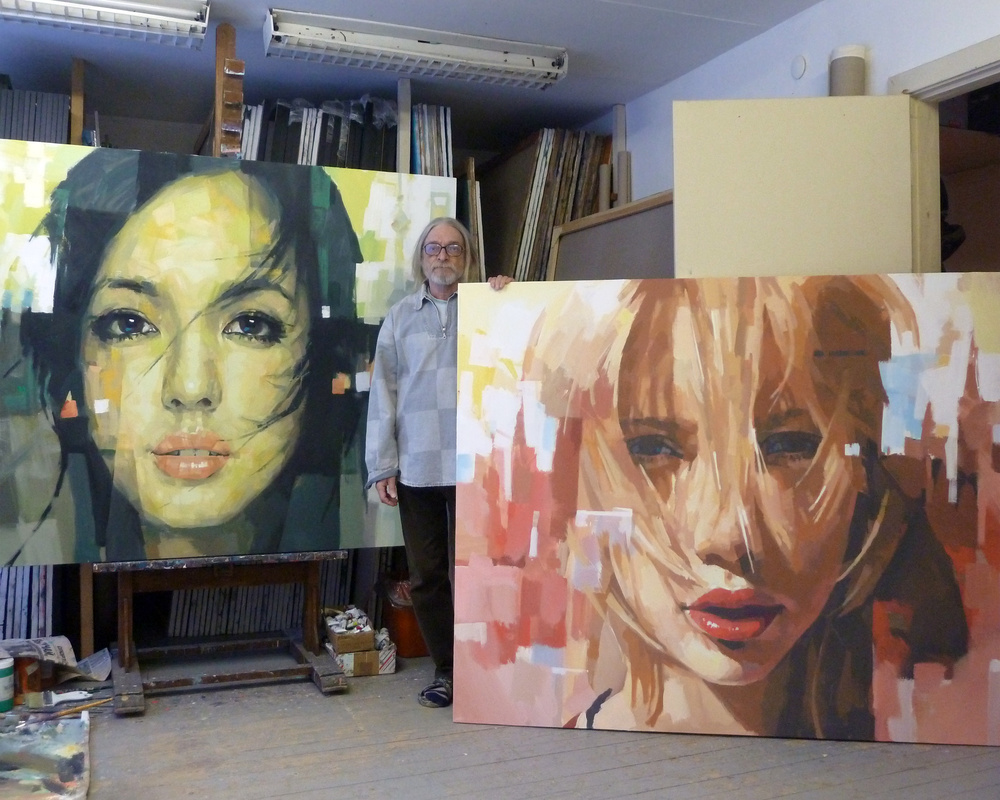





 Olimpia Gaia Martinelli
Olimpia Gaia Martinelli




